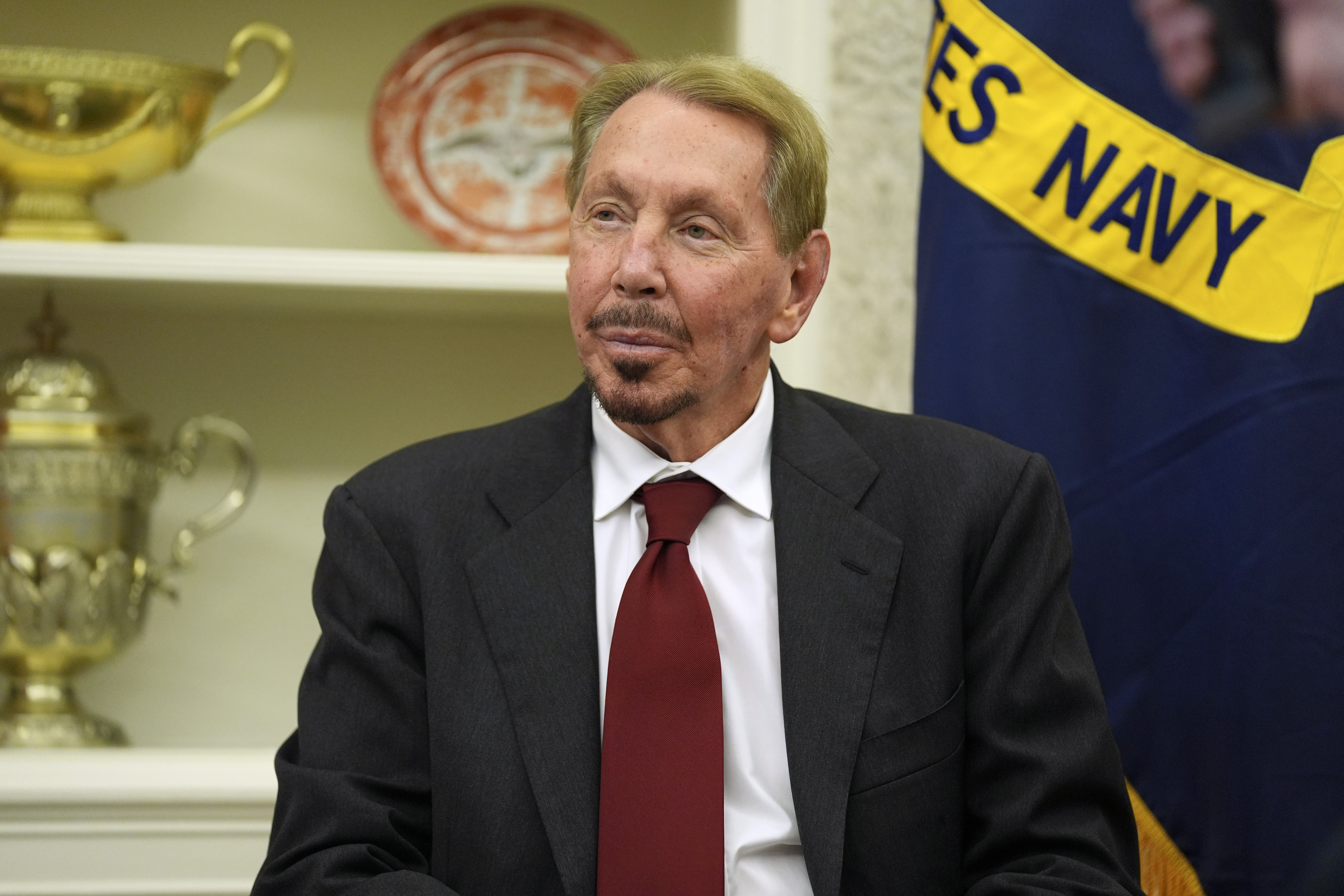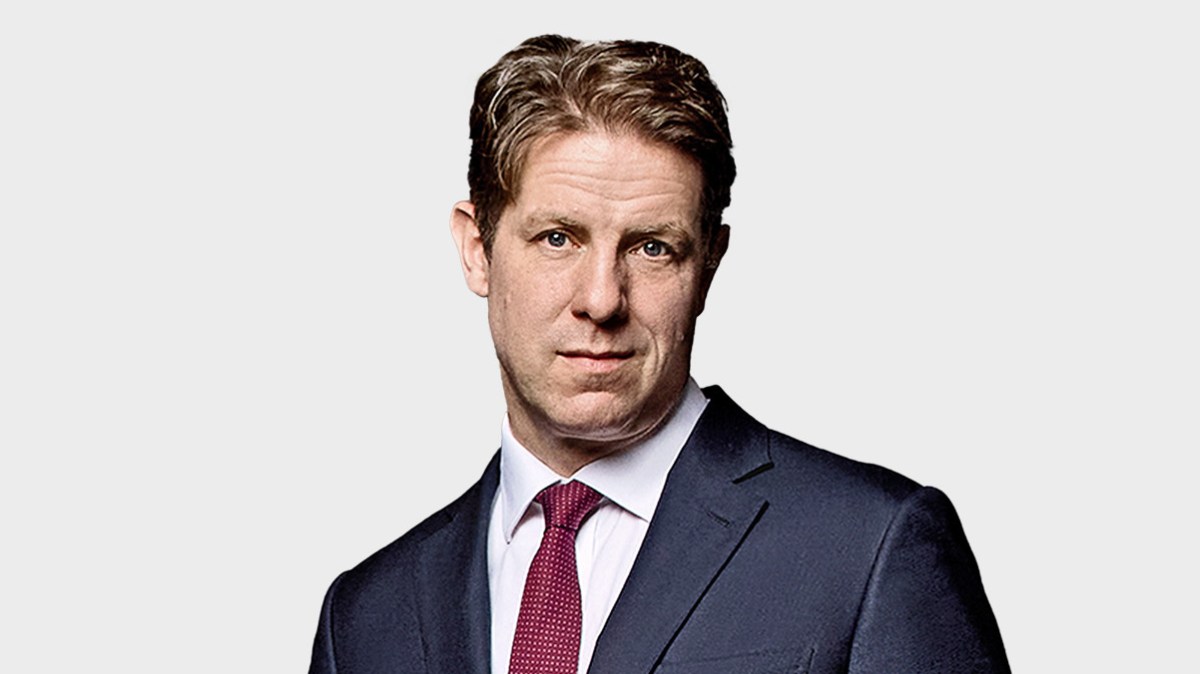There’s quite a guest list for the King’s banquet at Windsor Castle next week. Jensen Huang, the chief executive of Nvidia, the most valuable company in the world, will be in attendance, as will Sam Altman, who runs OpenAI. So too Larry Fink, who runs the asset management behemoth BlackRock. Oracle’s Larry Ellison, who vies with Elon Musk for the status of the world’s richest man, won’t be there — but he’s busy building a 7,000-scientist campus in Oxford. The intended toast at the dinner: a freshly signed tech deal.
It can be hard to see anything through the political wreckage that presently surrounds Keir Starmer. To lose his US ambassador to scandal a week before Donald Trump’s state visit is bad; to have done so in a fog of Jeffrey Epstein sleaze is worse. But Peter Mandelson had at least been putting his serpentine skills to his country’s service, working on a tech deal that should be announced in days. It could end up being more consequential than any of this week’s political pantomime.
At the heart of it lies Silicon Valley’s belief that the world is on the cusp of a tech transformation, one that could treble global wealth just as free trade did after the Cold War. If AI does supercharge growth, gains will not be evenly shared. America comes first, as its stock market growth attests. China is next. But then it’s Britain. We’re the only other democracy with a trillion-dollar tech sector and a university base to rival America’s. The great attraction to foreign investors is that British talent comes at about a third of the price.
Huang puts it thus: Britain has “one of the richest AI communities anywhere on the planet”, with startups such as DeepMind, ElevenLabs and Synthesia. But we lack the capital markets. Those who need serious money go to America. We also lack the infrastructure: the big, expensive data centres, supercomputers and so on. Nvidia and OpenAI see a big opportunity to build the missing pieces. They’re expected to announce a multibillion-pound deal to do so near Blyth, Northumberland.
The other advantage is Brexit. We got out of the EU before its great innovation crackdown, the implications of which are already being felt. Apple will soon launch earphones with simultaneous-translation technology, for example — but not in the EU because of its rules and directives. Brussels tends to see AI as something that might be developed in a Wuhan lab and regulates accordingly. Britain is more relaxed and sells itself as a place offering more freedom than anywhere else in Europe. Even many American states.
Some companies are giving up on Britain. Ineos and Merck did so this week, exhausted by never-ending tax raids on energy and medicine. AstraZeneca is wearying too. But our tech firms are less exposed. Perhaps because they’re light on profits (with the embarrassing exception of OnlyFans) and their billionaire investors tend to live overseas already, a natural consequence of tax-the-rich policies. This frustrates the Treasury, but being used as a tech workshop is a good second best, bringing services exports and jobs to parts of the country (like the north east) where they’re most needed.
The draw for Silicon Valley is just how absurdly good (and affordable) our tech workers are. If Britain were America’s 51st state, we’d be the poorest in the union — and our salaries reflect this. Barney Hussey-Yeo, founder of the Cleo AI personal finance app, recently observed that the best Cambridge PhD grad costs as much to hire as a Stanford student who flunked his computer science class. Software engineers there, he says, are “two to three times” more expensive than in the UK. This makes a strong case for investing in Britain, albeit depressingly similar to the case India was making a generation ago.
Trumpian promises may be taken with a barrel of salt, but it’s harder to dismiss what’s happening in Oxford. Ellison has spread more than £1 billion across various interconnected investments with research laboratories, supercomputing facilities and an oncology and preventative care clinic. His Oxonian empire will also include the 17th-century Eagle and Child pub which he is restoring and reopening in honour of JRR Tolkien and the Inklings group who used to meet there.

Larry Ellison, chairman and chief technology officer of Oracle, is building a vast campus in Oxford
EVAN VUCCI/AP
The panic in Oxford now, at least in certain circles, is that Ellison is too serious. That he has bought his way into the university’s ecosystem and will soon pollute it, sucking in academic talent with his vulgar, high-paying commercialism. That’s certainly one way to see it. Another is to view his interest as the overdue start of a great British take-off as we move towards the US tech slipstream. And that our world-class scientists and engineers may finally be paid something close to their actual value.
In this way, the King’s banquet will mark a surge of American Anglophilia. It runs from JD Vance’s holidays to the reports of Ivy League research teams seeking refuge from what they see as Trumpish persecution. It’s unclear how real this all is, but university applications from Americans have been surging. Starmer is being urged to say he’d fast-track entire academic teams (and their families) to capitalise on any American brain drain.
There aren’t many things Britain genuinely does better than almost anywhere else in the world, but tech really is becoming one of them. Not so much in rivalry to what’s going on in America but in partnership with it. As Voltaire observed when he saw the pageantry for Newton’s funeral, Britain loves its scientists and gives them freedom. We just can’t afford to pay them very much. Americans can.
If you were to judge Britain by its politics, you’d see a tawdry disaster with bad times just around the corner, the outlook absolutely vile. But longer term? We see the only major European nation not bracing itself for terminal working-age population decline. A country rich in the universities and skills base that money cannot replicate. That’s why, regardless of the personalities in No 10 or the White House, it makes sense for Britain and America to work more closely together on tech. Brexit brings the freedom to do so.
This has been another week of scarcely believable political debacle. But behind it, another story will be on display at St George’s Hall on Wednesday evening: that of a rain-battered island that still manages to draw the world’s most powerful people into its orbit. That gravitational pull — of our scientists, universities, language and unifying culture — is Britain’s strongest currency. It’s currently undervalued. Building an Anglo-American tech engine could be our best chance of putting that right.

